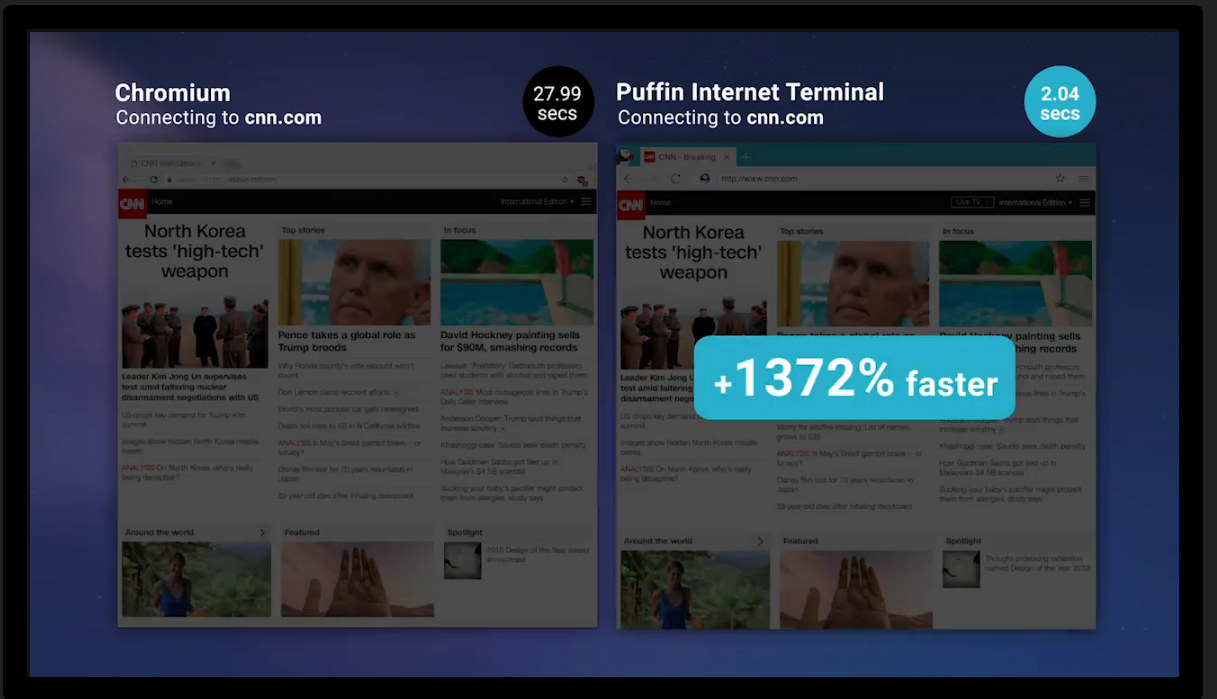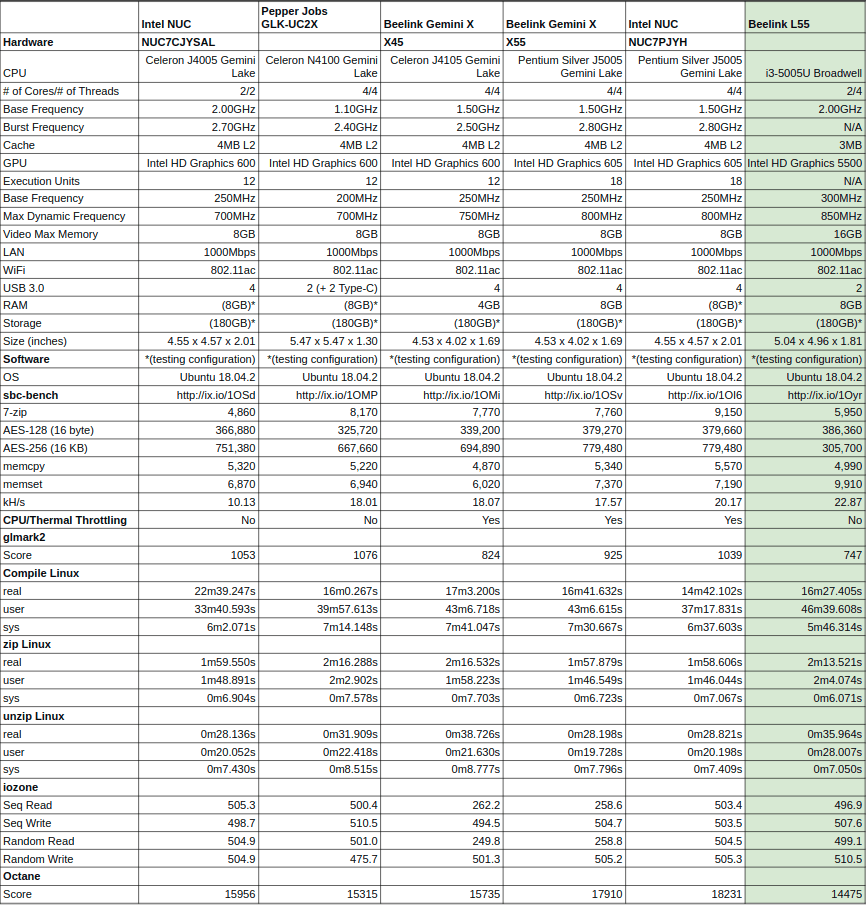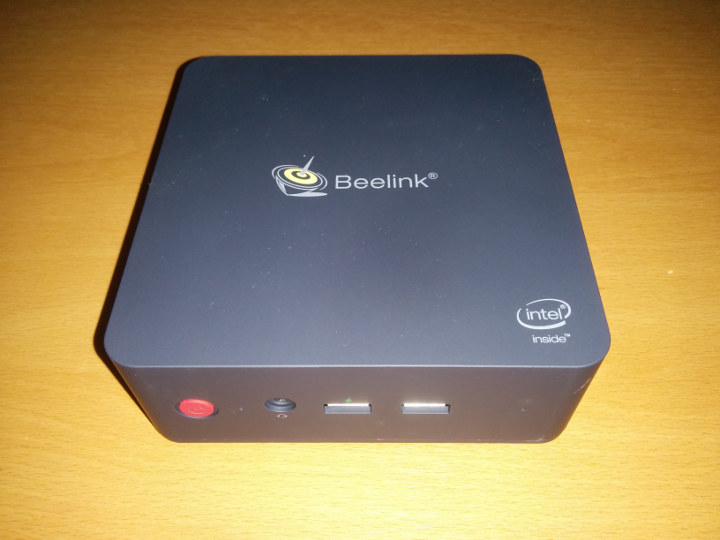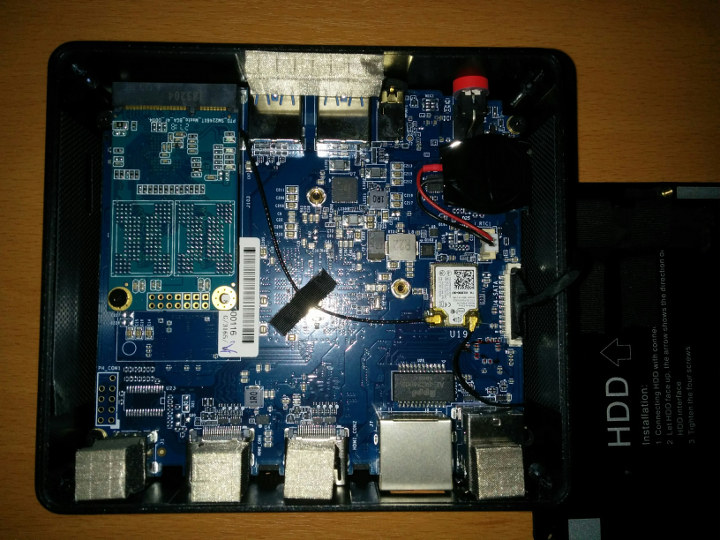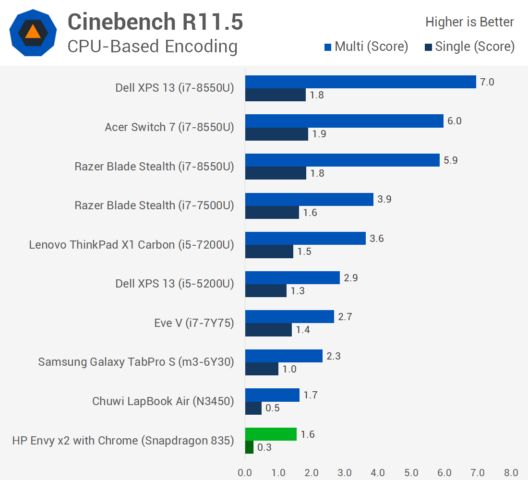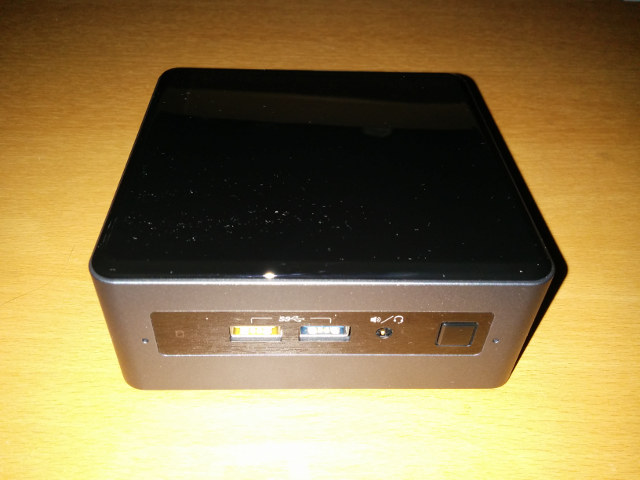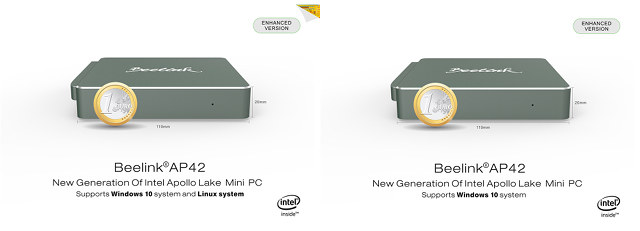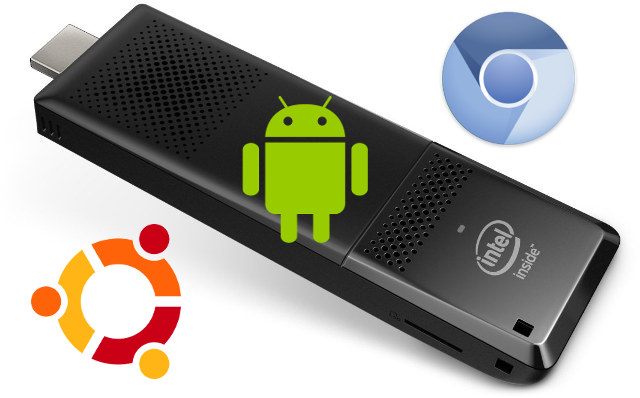The Raspberry Pi is a great little Arm Linux board designed for STEM education. But with many children now have to learn remotely, the board would be useful as a computer replacement, but users may find web browsing on the Raspberry Pi to be rather sluggish. Puffin Cloud Learning is designed just for that use case and promises to make the Raspberry Pi SBC much faster for web browsing, and they tested several websites, and for instance, CNN website loads almost 14 times faster with the Puffin Internet Terminal compared to using Chromium only. How is that possible? Simple: the Raspberry Pi is simply used as a thin client with complex web rendering performed on the company’s encrypted cloud servers where a JavaScript engine is used to pre-process and compress web pages sent to the Raspberry Pi. The company also claims Puffin Internet Terminal is 1200% faster than Chromium using […]
Intel Mini PCs Linux Performance Comparison
Recent vulnerabilities in Intel x86 microprocessors (Meltdown, Spectre, Foreshadow, RIDL, Fallout, ZombieLoad, etc.) are now addressed with mitigation patches for the Linux kernel although have resulted in some performance degradation. As a consequence, my previous comparison benchmarks could be somewhat misleading when compared with new results given the different versions of software at the time of execution. So I’ve repeated running my standard Phoronix Test Suite benchmarks on several of the latest mini PCs each running the latest updated Ubuntu 18.04.2 software with the same Ubuntu 4.15.0-54 kernel. Specifically, the mini PCs I’ve used are as follows: Intel NUC NUC7CJYSAL (Celeron J4005 Gemini Lake) Pepper JobsGLK-UC2X (Celeron N4100 Gemini Lake) Beelink Gemini X X45 (Celeron J4105 Gemini Lake) Beelink Gemini X X55 (Pentium Silver J5005 Gemini Lake) with updated BIOS Intel NUC NUC7PJYH (Pentium Silver J5005 Gemini Lake) Beelink L55 (i3-5005U Broadwell) On each mini PC, I’ve also run sbc-bench which is […]
Beelink L55 Review – An Intel Core i3-5005U Mini PC Tested with Windows 10 & Ubuntu 18.04
With the shortage of Gemini Lake processors, some manufacturers have taken to releasing new mini PCs using older CPUs. The Beelink L55 is one such example and uses Intel’s Broadwell I3-5005U CPU which is a dual-core 4-thread 2.00 GHz processor with Intel’s HD Graphics 5500. The L55 is a ‘NUC’ style mini PC and physically consists of a 128 x 126 x 46 mm (5.04 x 4.96 x 1.81 inches) box case with a front panel that includes the power button, a headphone jack and a couple of 3.0 USB ports and then on the rear, two more 3.0 USBs, two 2.1 USBs, HDMI (1.4), DP and two gigabit Ethernet ports. Note that there is no SD or micro SD card slot. The full specifications include: The L55 comes with either a 256GB or 512GB (as tested in this review) M.2 SSD with pre-installed Windows 10 Home version 1809 together […]
Beelink X55 Review – An Intel Gemini Lake mini PC Tested with Windows 10 and Linux
The Beelink X55 is very similar in style to Intel’s NUC7PJYH NUC reviewed earlier except that it is not a kit but a fully functional Windows mini PC. It is physically small consisting of an approximately 4.5″ by 4” case about 1¾” tall with a front panel that includes the power button and a couple of USB ports and a headphone jack with the rest of the ports including two HDMI (2.0) ones at the rear: The specifications include: The key highlights are that the Beelink X55 comes a 128GB mSATA SSD with pre-installed Windows 10 Home together with 8GB DDR4 RAM (soldered and is non-expandable) and space plus a connector for an SSD. Starting with a quick look at the hardware information shows it is mostly aligned to the specification but see the note below about the memory: As usual I ran my standard set of benchmarking tools to […]
Snapdragon 835 based Always-Connected PC Benchmarks Show Performance Similar to Intel Apollo Lake Laptop (in Most Cases)
The first Windows 10 Arm Mobile PCs were announced a few months ago, all based on Qualcomm Snapdragon 835 processor, with products such as HP Envy x2 (2017) and ASUS NovaGo TP370. The new products promised LTE connectivity, very long battery price, a user experience similar to the one on Intel/AMD based laptops, and at price points ($600 and up) that should command good performance. But TechSpot ran some benchmarks on HP Envy x2 (a $1,000 device), and in most cases, the new always-connected PCs come with performance similar or even lower than a Chuwi laptop based on an Intel Celeron N3450 Apollo Lake processor that sells for a little over $400. That appears to be valid for both x86 emulation and native apps. In some case, the Snapdragon laptop does pretty well with performance close to Core m3 / Core i5-5200U processors such as in the Microsoft Excel workload […]
Intel NUC7CJYSAL “June Canyon” Gemini Lake NUC Mini PC Review with Windows 10 and Ubuntu
The hardware specification for mini PCs has recently evolved past the traditional fixed amount of memory and storage. Now mini PCs are shipping with SODIMM slots allowing RAM expansion and a variety of M.2 or SSD combos providing flexible storage options. Recent mini PCs are also coming to market with desktop processors rather than mobile processors because there has been a gradual acceptance of the necessary inclusion of a small internal fan. In doing so not only is this addressing the key limiting factors for mini PCs but it is also redefines the very definition of a mini PC. Until recently Intel NUCs (Next Unit of Computing) were seen as small-form-factor personal computers primarily because they consisted of the traditional motherboard with a processor, included removable RAM and storage and were enclosed in a case with an external power supply. They were also sold as kits meaning they were essentially […]
Beelink AP42 Apollo Lake mini PC Linux Review with Ubuntu, KDE Neon, Elementary OS….
Beelink’s latest Intel mini PC offerings includes the AP34 and AP42 which are their first models using Intel Apollo Lake processors. The former uses an Intel Apollo Lake Celeron N3450 processor (burst frequency 2.2GHz, Intel HD Graphics 500 with Graphics Burst Frequency 700MHz and 12 Execution Units) while the latter uses the slightly more powerful Pentium N4200 (burst frequency 2.5GHz, Intel HD Graphics 505 with Graphics Burst Frequency 750MHz and 18 Execution Units). Both support Windows 10 (Home) and Beelink’s marketing claim they “support Linux system”. GearBest has given me the chance to review running Linux on the AP42 model so here are my findings. Normally I first make a disk image before booting Windows or installing Linux. However initial attempts at booting a Live USB with a variety of Linux systems failed so both the reseller and manufacturer were contacted for comment. Interestingly there was no immediate reply but early […]
Android, Chromium OS, and Ubuntu on Intel Atom x5 Compute Stick. What Works, What Doesn’t.
The latest “STK1AW32SC” Intel Compute Stick, also called Sterling City, is powered by an Intel Atom x5-Z8300 processor with 2GB RAM and 32GB storage, and pre-loaded with Windows 10. There’s also a version with operating systems dubbed STK1A32SC, but currently only the Windows version is available on Amazon US. That doesn’t not mean you can’t try to install other operating systems on the TV stick, and that’s exactly what Ian Morrison has done with Android 4.4 & 5.1, Phoenix OS, Remix OS (alpha), Chromium OS, and Ubuntu. If you want to know how to install the operating systems, you can follow the instructions for Ubuntu , Chromium OS, or Android/ Remix OS/ Phoenix OS. Bear in mind that installing Android also require that you install Ubuntu first, and there are quite a lot of steps, and once you’ve installed Chromium OS, you could also run Ubuntu using Crouton. So […]


